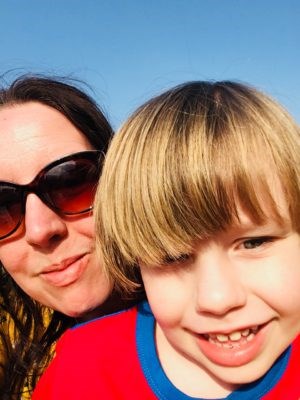
What you don’t see: Autistic people should be accepted and valued in the workplace
I may be ever so slightly biased, but I reckon my son Oliver is pretty perfect. He’s a regular little comedian, performing dramatic exaggerated falls followed by “oh whoops, I tripped” as he rolls around on the floor letting out a huge belly laugh. He loves going on bear hunts, digging for pirate treasure and having dinosaur/prehistoric/safari adventures (everything stops for Andy in our house).
He loves being outdoors running, climbing and jumping. He is kind, gentle and loving. He’s super clever, brilliant at maths and a great problem solver. He takes great pride in his ‘job’ of feeding our pet cat. He is in many ways a typical five-year-old. Oliver is also autistic.
At this point, I should make clear that autism is a spectrum condition. No two autistic people are the same. I can’t speak for others, but this is how it is for us.
If you were to hear Oliver chatting away now, you wouldn’t guess that he stopped talking at 18 months old and didn’t start again until he was almost four. He never shuts up. And I will never complain about his chattering or take it for granted because for a long time I worried it would never happen. Finding his voice has been a game changer. Life is so much easier for both of us now Oliver can express his needs and wants verbally.
If you were to see us visiting a local park, you might notice Oliver playing by himself. Not because he doesn’t want to play with other children, but because he finds communication difficult and doesn’t know how to join in their games. You wouldn’t see how much preparation went into that visit. How every night after we’ve read bedtime stories, I tell Oliver what he will be doing the next day before I kiss him goodnight. Where we are going, what we’ll do there, who we will meet. You won’t see how he diligently checked the weather app on my phone so he knows what the forecast for tomorrow is. You see, Oliver’s brain processes information differently which can make the world a very scary place. Routine and knowing what to expect in advance greatly reduce his anxiety.
You won’t see how I worry about how him making his way in the world as an autistic adult. This fast-paced world we live in, full of sights, sounds and smells. How I look around the workplace, hear the constant hum of the office refrigerator, the incessant tap, tap, tapping of hundreds of fingers striking keyboards, the loud roar of the Dyson hand drier in the toilets, the flicker of the strip lights. What things in the office might trigger his sensory difficulties and cause anxiety? Will he have enough coping strategies in his toolkit to get through the day? You won’t see how I worry that prospective employers and future colleagues won’t see past the outward signs of autism to appreciate his attention to detail and head for figures and the valuable contribution he could make.
I hear from some autistic adults that masking the outward signs of autism in order to fit in is draining. I desperately hope that by the time Oliver reaches working age, attitudes towards autism will have changed. That he can be accepted and valued for who he is without having to mask. That’s why World Autism Week is so important.
